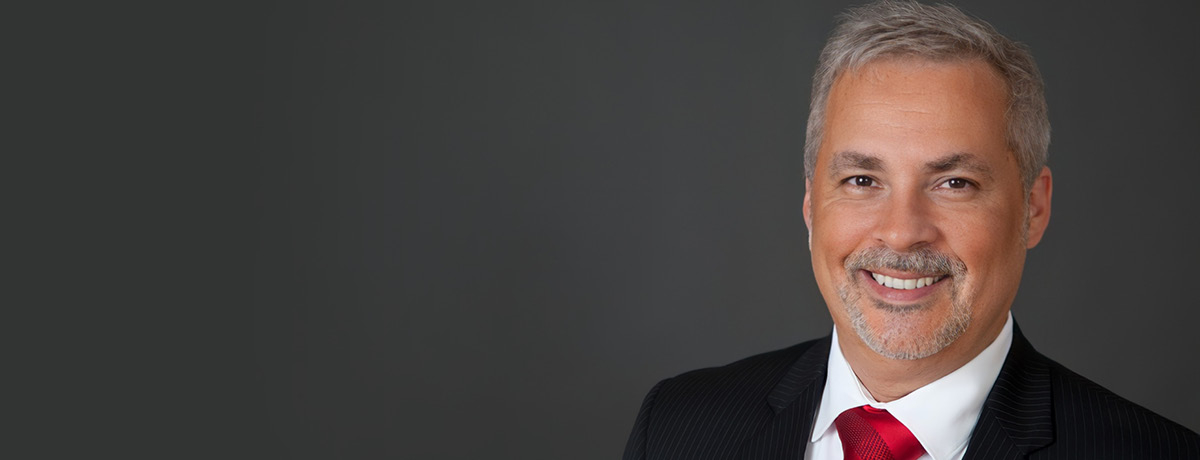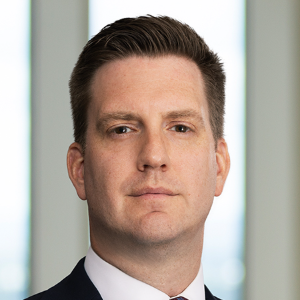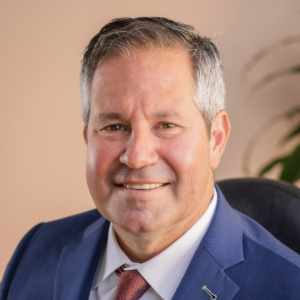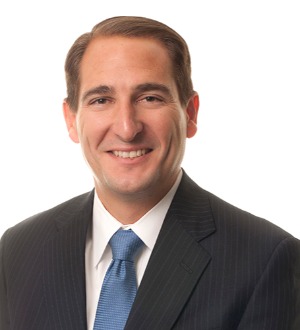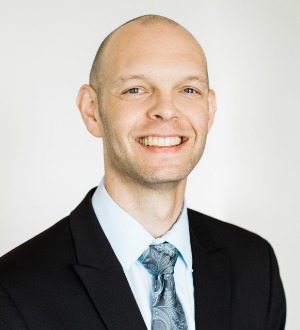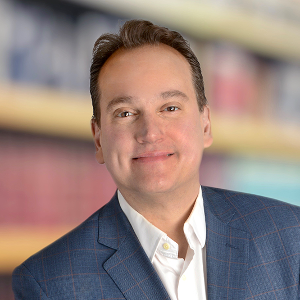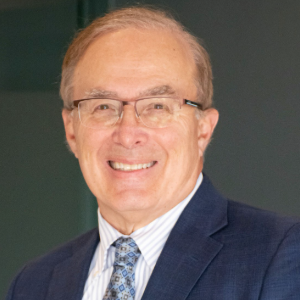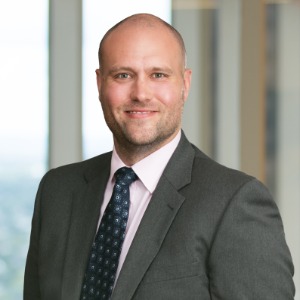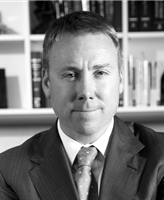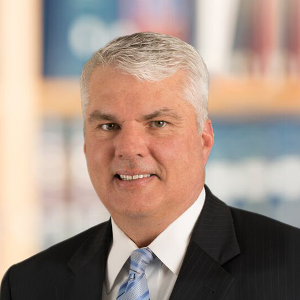Not only has Oatley Vigmond set the standard for personal injury law in Canada, but its lawyers have literally and figuratively written the book on it. The firm published and regularly updates numerous legal commentary publications on personal injury law that serve as a primary resource to all lawyers in Canada, some of which have been cited with authority by the courts, including courts of appeal. In addition, Oatley Vigmond has been recognized by The Best Lawyers in Canada™ and has received numerous accolades from the media and the legal community for its work.
One of its longest-serving lawyers is partner Brian M. Cameron, who joined Oatley Vigmond as an articling student in 1999 and has since forged an outstanding career in personal injury law. He represents people who have sustained serious injuries and the families of those who have died, with a focus on claims arising out of motor vehicle collisions, boating injuries, occupiers’ liability claims and product liability issues.
Cameron recently sat down with Best Lawyers over Zoom to discuss his career and to provide invaluable insight into his trial and negotiations techniques that have served in his success and for which he has been recognized by The Best Lawyers in Canada™ since 2017.

Why did you choose to work at Oatley Vigmond and practice in personal injury?
I'd never set out to be a personal injury lawyer in law school [at Western University] because torts was not my favourite class at the time. But after leaving law school in 1999, I got the opportunity be an articling student at Oatley Vigmond, not knowing about the reputation of the firm at the time. I also picked it so my daughter could have a nice backyard. Then after I got the job articling, I started to see all the significant cases the firm was involved in. I realized that I was in a really great place, and I've stayed ever since.
It seems in the legal field that lawyers often move around in different jobs or to different firms. Why have you stayed at Oatley Vigmond for 23 years?
Because I'm at the best personal injury firm in Canada. I’d be crazy to move. When I started here in 1999 after law school, I worked out of a little cubicle in the library and now I'm one of the old guys in the corner office. So no, I won't go anywhere, not until I retire. If I'm no longer working here, it means I'm no longer working.
You’ve mentioned law school a couple of times. What did you learn in school about trial and negotiations techniques and how is it different from actual practice?
When I went to law school, the only thing I did that was even remotely like being a real lawyer would have been doing a few moot appeals, and even those were bizarrely unrealistic. We weren’t really taught about what it's actually like to speak to people, or what it's actually like to be a lawyer. You can really only get an understanding of what it’s like when you're litigating a real case about someone's real life.
In law school, you learn about the law, which is important of course, and you do learn how to start thinking like a lawyer a little bit. But when you get out and actually do it for real, you're going to understand what's really important, because it's not the legal issues. I mean, I can spit out the law very easily, but when you get out in the real world, it's the facts that are important. It’s how you tell the story and what facts you have to put in your script.
Now I teach an advocacy course at Queen's University. And, honestly, I don't spend nearly as much time on the law as I remember them spending years ago. Instead, I spend more time on teaching how to structure the story so that it's believable or compelling. So that's a bit different.
However, I would add that law school did teach me how to structure my thinking in a way that is useful in this business. Because if you can't think clearly and critically, you can't do this. Well, you can do it, but you’ll just be doing it poorly and I see way too much of that.
Is it easier to win cases against lawyers who don’t engage in clear and critical thinking?
Actually, no, because they’re harder to reason with and they don’t understand when they have risk, that’s the problem. Very effective defence lawyers understand when they're in trouble, they know it. And they don't tend to play as many games. I'd rather deal with a very effective seasoned trial lawyer.
Thinking back to when you started out as a lawyer, can you remember your first case? How did it go?
I remember the first case I ever settled as a student. It was a small case for a guy who had choked on a chicken bone in a sandwich at a large fast-food chain. I ended up getting him $1,000 or something like that. This is in 1999. I remember talking on the phone with opposing counsel, going back and forth, but I didn't really know what I was doing. Yet, we ended up resolving it. I can still remember that case.
Then, over time, when I started to understand more about negotiations, I started to think more about how big my first number has to be to entice the best number from opposing counsel without making them think I'm too high or too low, because there's lots of messages that go along with the offer. The more important thing I’ve learned is that the hardest thing to do in negotiation is walk away. It's easy to set out what your position is, but the hardest thing to do is walk away.
Another thing I’ve had to learn is the actual mechanics of the negotiation. It all comes from being prepared. You have to know where to start and understand what the next move is. It's also about understanding what the other party is likely to do and what you can do with that particular number.
But I can't sit here and enumerate techniques to you; it's kind of like trying to trying to describe the colour yellow without showing it to you. What it comes down to is that you need to know your case, inside out and backwards, before you start. And you need to have a realistic assessment of what it's worth. And if you can't get that number, you have to be prepared to walk away. You can’t let the other side ever get the idea that you're not going to walk away or that you're going to fold at the last minute.
As we all know, actually getting to trial takes a long time. From a practical standpoint, what impact does that have on deciding whether to counsel a client to settle when it might otherwise take years to get to court?
Well, a couple of comments on that. The first thing is that you need to give clients timelines as best as you can because you need to manage their expectations, both in terms of dollars and in terms of time.
Also, I tell clients that there's a time value to money and to closure. And that value is not a legal question because people are different. Some people just want to get it done. Others are willing to wait for the right number. Ultimately, the client needs to understand the time value of it and the potential that, if we walk away, it's going to be another 18 months to trial. The client has to determine what that will mean for them. Making sure they understand the process is all part of being prepared. So you have to make sure the clients are prepared, and prepared to walk away. Most importantly, from their point of view, they have to be prepared to accept the risk. Whether clients are prepared to take that gamble is probably the biggest impediment to doing more trials.
Some personal injury cases in Canada are decided by juries. However, some Canadian jurists have said that they think that civil juries should be eliminated. What are your thoughts about using a jury versus a judge, and what role does that play in your work?
It's an ongoing debate in Canada and has been for quite some time. I've noticed that the loudest proponents who want to get rid of juries are people who don't try cases. But there are also many very, very good trial lawyers who want to get rid of them too, because they don't like the uncertainty of it and because jurors often make decisions based on things that aren't what lawyers would consider legal reasons, like emotions.
But it's hard for me to know what's better. For instance, because of COVID, we’ve had a couple of years of doing trials by judges instead of juries. And we were able to get good results with them. Additionally, I think that if we got rid of juries, losing that uncertainty would make it harder to settle cases. So in the short term, we may do better with judges. But I'd rather have a little bit of uncertainty with the jury than find ourselves in a position where there are no more juries. And depending on the case, I’d rather take my chances with six random people as jurors, to tell them the story of somebody's life and leave it to them. Because if six people tell me I'm wrong, you know what, I'm probably wrong. On the flip side, a trial by judge alone is faster and cheaper.
I think it would be dangerous to take the public out of it, but I could be totally wrong. I don’t know the right answer to that.
There’s a negative stereotype out there about personal injury lawyers being so-called “ambulance chasers”. How does that make you feel? How do you respond to that
I don't respond to it. Lawyers are like police officers or dentists in that you may have a negative opinion or feeling about them…until you need one. So I'm okay with that. It's just one of those things. I don't know how to get around it.
I’d also add that this is one of the best jobs you can have because you can actually help people. You can alter their life and you can restore their dignity.
For instance, I remember working on a case 10 or 12 years ago with a client who had become paraplegic. After a 10-week trial, as a team, we were able to get him one of the highest awards for a paraplegic in Canadian history. A couple of years after the trial, I went to his wedding. He married one of his health care workers and he has two kids now. Of course, we couldn’t erase his injuries, but we were able put him in a position where he doesn't have to worry about money anymore and help give him back his dignity as far as that goes. He probably has his moments where, of course, he's sad it happened, but he's got a life.
So I'll take that over the odd joke. It’s such a nice feeling to know that you can make a decent living and still affect people's lives in a positive way. It’s a unique job and I can't think of another one where you can have such an impact on somebody's life. I like that I’m able to help people. So that makes up for all the other comments.
Are there certain cases that you’ve worked on that stand out to you?
The cases I remember the most are those like the above-mentioned gentleman and attending his wedding. Seeing his first dance with his wife, even though he was in his wheelchair, I remember that. That he was able to have his first dance like everybody else.
So the reality is that it’s more about the people we can help. I also remember running into this one kid at a mall around Christmas several years after we settled his case. And he said, “Thanks for giving me my life back.” So, that's pretty cool.
Do you ever find some of the cases to be emotionally difficult?
The fatalities are probably the hardest. It’s hard to have to tell the mother or father of a deceased five-year-old child: “well, here's a cheque”. Because when someone has been injured, money can help them get their life back to a certain degree. But that can’t happen in fatalities. I really dislike that. But I have to maintain my professionalism, or I wouldn’t be able to do this.
Over the course of your career, have you observed any trends or changes in the way that personal injury is practised?
One of the biggest trends in Canada is that we're starting to catch up with the United States when it comes to advertising. I mean, I remember going to Vegas and you can't take the trip from the airport without seeing 71 billboards of personal injury lawyers. But it hasn’t been like that in Canada until recently. So I see that trend and I see it becoming maybe a little bit more adversarial than it once was.
Also, every few years, we have to deal with the government making changes to what we can recover in no-fault, or what we can recover in a tort action. But it's often done in a slow fashion, so it's not that dramatic. But you see those trends every now and then that are sort of cyclical.
What about your practice, how has that changed over the years?
In terms of Oatley Vigmond and my practice, not much has changed. Not in a static sense that we've never learned, but we've been doing things in the same successful way. We prepare every case as if it's going to go to trial, even though almost none of them do. So the preparation doesn't change. I'm still going to get the case ready. And I still think of every case as if I had to present it to a judge or a jury. And that's never changed. For me, my process has been the same, I’ve just learned more and better processes.
And I try to treat the small cases the same as the big ones. In fact, the small ones are harder, to be honest. Because anyone can get a million dollars for a quadriplegic but try getting $750,000 for somebody's chronic pain that can’t be seen, that takes a lot more skill.
Are there any changes you would like to see in the field?
I would like to see more judges, more juries and more accessibility to the courts. I mean, it really does take a long time and I would like to see that sped up. I think the system works about as well as you can expect it to work, and I don't really have any complaints, but I would like more judges and more capacity.
If you could go back in time and give yourself advice on your first day of law school, what would it be?
I don't think that I would say to do anything differently, because it has not been different than I thought it would be. Because I was a little older when I went to law school, I think I was a bit more realistic about what it was going to be like.
But I would say: Just stay organized and be ready. Although I already knew that then, I'm not sure I understood how important it was at the time.
And maybe the most important thing is: don't be scared to walk away. You have to do what’s best for the client. So if you can settle it for a good number, there's no risk on them. But don't let the fear of losing put you in a position where you're never going to win. It’s important to remember that, but it’s also tough. I mean, if the defence makes an unreasonable offer, it's easy to say no. But if they make an in-between offer, it’s harder to say no. So you have to learn to be able to walk away and push it ahead and make it work out, knowing that you could always lose. I don't like losing, period, but you can't let that fear of losing stop you from walking out because, ultimately, you’d just be failing over time and not helping anybody. My attitude is that as long as you're right and you're ready, it'll work out most of the time.
Learn more about Oatley Vigmond’s tradition of success and excellence at OatleyVigmond.com and reach the firm toll-free at 1-866-269-2481.
